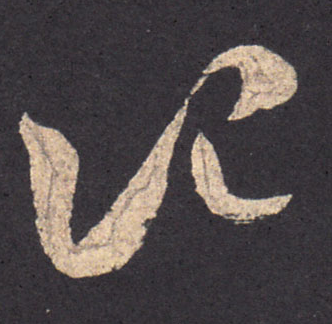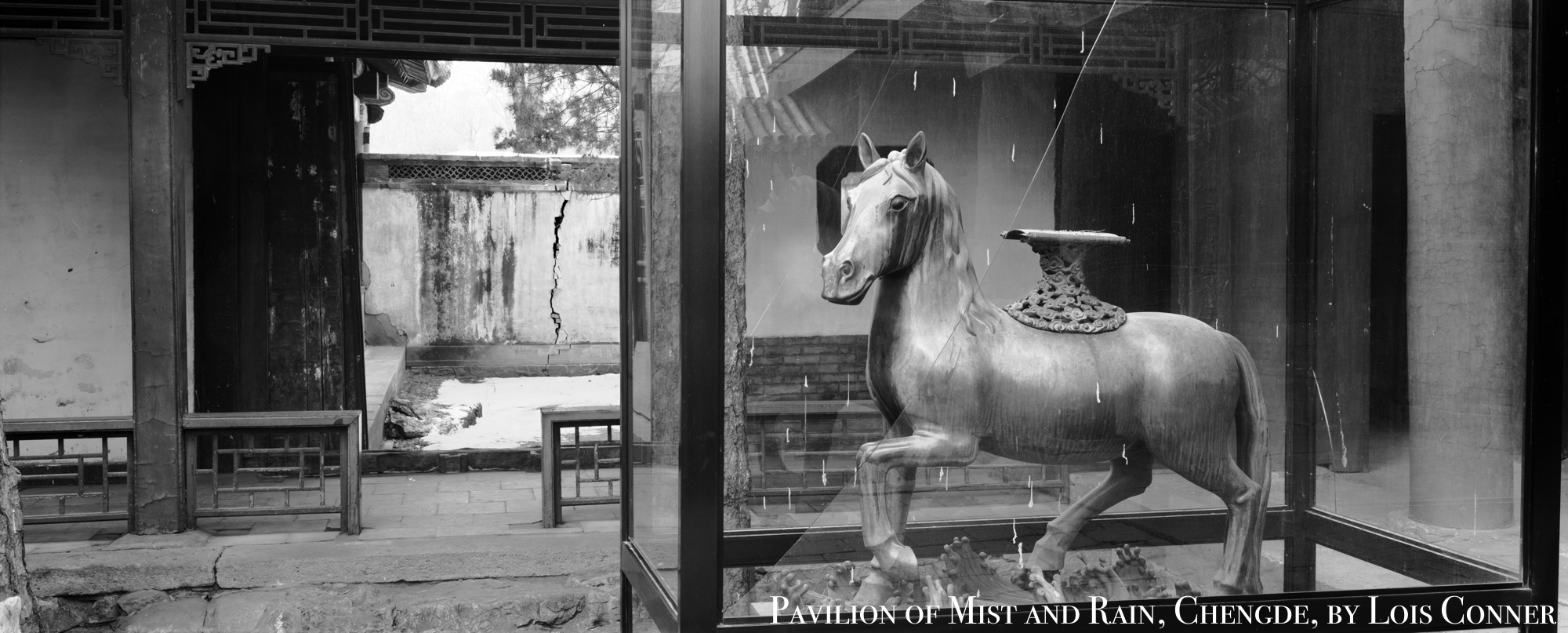Other People’s Thoughts is a section of the China Heritage site featured in our Journal. It is inspired by a compilation of quotations made by Simon Leys (Pierre Ryckmans), one of our Ancestors.
Pierre remarked that the modest volume of quotations recorded over his reading life was ‘idiosyncratically complied for the amusement of idle readers’ (see Simon Leys, Other People’s Thoughts, 2007). Our aim is similar: to amuse our readers (idle or otherwise), as is our modus operandi: to build up an idiosyncratic compendium, one that reflects the interests of The Wairarapa Academy for New Sinology and its coterie.
In collecting this material, and by adding to it over time (this is the fifth instalment in the series), we accord also with a Chinese literary practice in which quotations — sometimes called yǔlù 語錄, literally ‘recorded sayings’ — have a particular history, and a powerful resonance.

The most famous collection of recorded sayings is The Analects 論語, compiled by disciples of Confucius. Then there is the timeless 5000-words of Laozi’s The Tao and the Power 道德經, as well as the Chan/Zen 禪宗 tradition of what in English are known by the Japanese term kōan 公案 — anecdotes or statements aimed at goading an individual towards enlightenment — that date from the Tang dynasty. Modern imitations range from the political bon mots of Mao Zedong to excerpts from the prolix prose of Xi Jinping’s tireless speech writers, as well as published snippets from arm-chair philosophers and motivational speakers.
Other People’s Thoughts also finds inspiration in the ‘poetry talks’ 詩話, ‘casual jottings’ 筆記 and ‘marginalia’ 眉批 of China’s literary tradition.
***
Contributors
Quotations suggested by members of the Academy and friends are acknowledged by providing their initials in square brackets at the end of the relevant quotation. Thus, John Minford is [JM]; Richard Rigby [RR]; and, Scot Barmé [SB]. My selections are unmarked.
For more Other People’s Thoughts see here.
— Geremie R. Barmé, Editor, China Heritage
22 September 2017
Other People’s Thoughts, V
A Fictional Life
People may treasure The Dream of the Red Chamber in their hearts, but they live in the world of The Water Margin; they might yearn for friendships like the Brotherhood of the Peach Garden in the Three Kingdoms, but they encounter the evil spirits and ghosts of Journey to the West. 人啊,長了顆紅樓夢的心,卻生活在水滸的世界,想交些三國里的桃園弟兄,卻總遇到些西遊記里的妖魔鬼怪。(A popular saying, trans. Geremie R. Barmé)
Ideology
The thrall in which an ideology holds a people is best measured by their collective inability to imagine alternatives. (Tony Judt, ‘Captive Minds, Then and Now’, 13 July 2010)
Pity
Too often, in response to the conservative impulse to punish, the liberal impulse is to pity. Pity does not alleviate oppression; it simply assuages guilt. The pity is not for the receiver but for the giver. (Charles M. Blow, 17 August 2017)
A National Sport
Sarah Lyall: Is there something about the British psyche that makes spying, or at least duplicity, an enticing prospect?
Ben Macintyre: We Brits are particularly susceptible to the double life, aren’t we? Is it because we are a sort of theatrical, and sort of unfaithful, culture?
John le Carré: I think it’s because hypocrisy is the national sport. For our class in my era, public school was a deliberately brutalizing process that separated you from your parents, and your parents were parties to that. They integrated you with imperial ambitions and then let you loose into the world with a sense of elitism — but with your heart frozen.
Ben Macintyre: There is no deceiver more effective than a public-school-educated Brit. He could be standing next to you in the bus queue, having a Force 12 nervous breakdown, and you’d never be any the wiser.
John le Carré: When you’ve become that frozen child, but you’re an outwardly functioning, charming chap, there is a lot of wasteland inside you that is waiting to be cultivated. (Sarah Lyall in conversation with John le Carré and Ben Macintyre, 25 August 2017) [RR]
The Borgias vs. the Cuckoo Clock
Dad’s favorite quotation—one he managed to sneak into nearly every lecture he gave — was Harry Lime in The Third Man: ‘In Italy for thirty years under the Borgias they had warfare, terror, murder and bloodshed, but they produced Michelangelo, Leonardo da Vinci and the Renaissance. In Switzerland they had brotherly love — they had five hundred years of democracy and peace, and what did that produce? The cuckoo clock.’ He read this as a compliment. (Daniel Judt, ‘Going Nowhere’) [SB]
Inspiration
Often people, especially young people, need to be part of something bigger than themselves or even their families, some immense idea to devote one’s life to. The Cold War shows what can happen when such notions get perverted for the sake of power, influence and control.
That does not mean that these very human urges are in themselves worthless. But it is a warning that we should consider carefully the risks we are willing to take to achieve our ideals, in order not to replicate the terrible toll that the twentieth century took in its quest for perfection. (Odd Arne Westad, ‘The Cold War and America’s Delusion of Victory’, 28 August 2017)
On Reading
The man who has not the habit of reading is imprisoned in his immediate world, in respect to time and space. His life falls into a set routine; he is limited to contact and conversation with a few friends and acquaintances, and he sees only what happens in his immediate neighbourhood. From this prison there is no escape. But the moment he takes up a book, he immediately enters a different world, and if it is a good book, he is immediately put in touch with one of the best talkers of the world. This talker leads him on and carries him into a different country or a different age, or unburdens to him some of his personal regrets, or discusses with him some special line or aspect of life that the reader knows nothing about. An ancient author puts him in communion with a dead spirit of long ago, and as he reads along, he begins to imagine what the ancient author looked like and what type of person he was. (Lin Yutang 林語堂, 1895-1976, The Importance of Living 生活的藝術, 1937) [JM]
On Being a Pro
The act of a pro is to make it look easy. Fred Astaire doesn’t grunt when he dances to let you know how hard it is. If you’re good at it, you leave no fingerprints. (Lillian Ross, Reporting Back: Notes on Journalism, 2002)
Nabokov On…
Public Speaking
I’m not a dull speaker, I’m a bad speaker, I’m a wretched speaker. The tape of my unprepared speech differs from my written prose as much as the worm differs from the perfect insect — or, as I once put it, I think like a genius, I write like a distinguished author, and I speak like a child.
That Little Sob
First of all, I do not wish to touch hearts and I don’t want to affect minds very much. What I want to produce is really that little sob in the spine of the artist-reader.
A Work of Art
A work of art has no importance whatever to society. It is only important to the individual, and only the individual reader is important to me. I don’t give a damn for the group, the community, the masses, and so forth.
Style
There seem to be three levels of readership: at the bottom, those who go after ‘human interest’; in the middle, the people who want ideas, packaged thought about Life and Truth; at the top, the proper readers, who go for style. (Patrick Kurp, ‘ “That Little Sob in the Spine”: Vladimir Nabokov in Conversation’, 31 August 2017) [SB]
Politics
Since my youth — I was nineteen when I left Russia — my political creed has remained as bleak and changeless as an old gray rock. It is classical to the point of triteness. Freedom of speech, freedom of thought, freedom of art. The social or economic structure of the ideal state is of little concern to me. My desires are modest. Portraits of the head of the government should not exceed a postage stamp in size. No torture and no executions. (Nabakov in Robert H. Boyle, ‘An Absence of Wood Nypmphs’, 14 September 1959)
Intolerance
I think the great boundary is to not tolerate people who would destroy the world that makes it able to tolerate people. (Salman Rushdie, 2 September 2017)
On Trump
It is not quite fair to say that Donald Trump lacks core beliefs, but to the extent that we can take apart these beliefs they amount to Give Donald Trump Your Money and Donald Trump Should Really Be on Television More. The only comprehensible throughline to his politics is that everything Trump says is something he’s said previously, with additional very’s and more-and-more’s appended over time; his worldview amounts to the sum of the dumb shit he saw on the cover of the New York Post in 1985, subjected to a few decades of rancid compounding interest and deteriorating mental aptitude. He watches a lot of cable news, but he struggles to follow even stories that have been custom built for people like him — old, uninformed, amorphously if deeply aggrieved. (David Roth, ‘The President of Blank Sucking Nullity’, 22 August 2017)
On Revolution
From a distance, revolutions always look heroic. They seem to epitomize mankind’s yearning for justice. But in the revolutionary fire, purification and destruction become indistinguishable. Yesterday’s dreamers turn into executioners; their followers, into victims. It doesn’t matter to the dead whether they were sacrificed for mankind’s happiness or shot for their wallets. (Anastasia Edel, ‘The “Bright Tomorrow”: Growing Up in the Brezhnev Era’, 5 September 2017)
Immigration
If immigration is debated only in terms of whether it benefits the economy, politicians begin to divide people into two categories: ‘valuable’ and ‘illegal’. When countries make people illegal, the world comes apart. When we agree to talk about people as cogs, we lose our humanity. (Mascha Gessen, 6 September 2017)
Ai Weiwei on China
Can China be a global power? I don’t think so. It can gain an advantage, that’s true. But it doesn’t have soul. It doesn’t have heart. It doesn’t trust its own people. So it has no self-identity in the sense that it has never accepted human rights as common values. No freedom of speech, no independent judicial system. If those don’t exist, how can you have creativity? How can you be a country? So forget about China. China is an illusion. It’s there, it’s large. But nobody can tell you what it is. (Ai Weiwei, ‘Without the prison, the beatings, what would I be?’, 17 September 2017)

